Learn how to be an effective wellbeing champion
Our public Wellbeing Champions Training program is designed to give you the foundational skills to be an effective advocate. On completion of this highly-practical four hour course, walk away with:
- A solid understanding of key wellbeing concepts and knowledge areas.
- Clarity on the roles and responsibilities of a wellbeing champion, along with effective boundary-setting skills.
- Practical strategies to effectively support wellbeing in your workplace.
- Confidence and skills to conduct meaningful wellbeing check-in conversations.
Limited places – save your seat:
Kickstart your journey
Build your ability to influence change
Wellbeing champions like you play a crucial role in the workplace. Typically, champions are employees who volunteer to provide worker representation on wellbeing-related issues in the workplace. Your role can include:
- Acting as the workplace’s eyes and ears into wellbeing, mental health and stress related issues and can be an early warning system for emerging issues.
- Acting as culture amplifiers, promoting and role-modelling good workplace culture, psychological safety, inclusivity and normalised conversations about mental health and wellbeing.
Our public Wellbeing Champions Training course is ideal for people aspiring to be a wellbeing champion in their workplace. You could be:
- In a people-related role such as HR, health and safety or organisational development.
- A people leader keen to learn how to better support your team.
- An employee anywhere on the organisation chart, keen to make a difference in your workplace.
This training opportunity has been designed for you! You’ll learn how to harness your passion, boost engagement, and drive real change.
Learning objectives
By the end of this training, you will:
- Understand key wellbeing concepts and knowledge areas.
- Understand the roles and responsibilities of a wellbeing champion and know how to set effective boundaries.
- Understand the mutual relationship between work and wellbeing.
- Understand the workplace drivers of wellbeing – both generally and via a facilitated session on the barriers to wellbeing specific to your workplace.
- Understand self-leadership and the drivers of personal wellbeing.
- Know how to be an effective wellbeing supporter.
- Be able to have a wellbeing check-in conversation.
The course is the core component of our Wellbeing Champions Training offering and is delivered over two 2-hour virtual workshops. It is supported by a workbook with exercises, reflections, and reading to ensure that the learning goes beyond the session.
What people say about learning with us

I did want to drop a line through to say a huge thank you for your time and the session with us, after you left we ended up discussing the topic until well after 6pm and it was just awesome. The whole team took so much from it and really valued your time – thank you so, so much. Worth absolutely every cent.

That was the best professional development opportunity I have attended since starting here at UC. The quality of the content and the delivery was exceptional. A significant reflection moment for me about many concepts covered, it really was amazing – having openly experienced a ‘spectacular burn out’ myself last year I just milked that whole presentation yesterday for the golden messages kind of moment it was…self care practices not being luxuries, the shadow of a leader, healthy caring…I could go on and on!

Well you did an absolutely brilliant job. We were delighted with how it went and feedback so far has been very, very positive. Thank you for truly listening and considering our requirements and getting it right for our audience. We loved working with you.
Your facilitator

BCS, BSc(Hons), GradDipPsych, DipProCoaching, Cert IV Training & Assessment, Cert III Fitness | CEO/Founder – Revolutionaries of Wellbeing
Sarah brings a wealth of knowledge and experience in corporate wellbeing and behaviour change and has supported well-known organisations to improve the wellbeing. She has a 15+ year career in the corporate sector specialising in leadership and organisational development in Australia and New Zealand, and her research on midlife eating attitudes and body dissatisfaction, published in the New Zealand Journal of Psychology, continues to be cited in leading literature. She has been featured in the media and regularly presents to workplaces – often drawing on her lived experience of burnout and how to truly take care.

